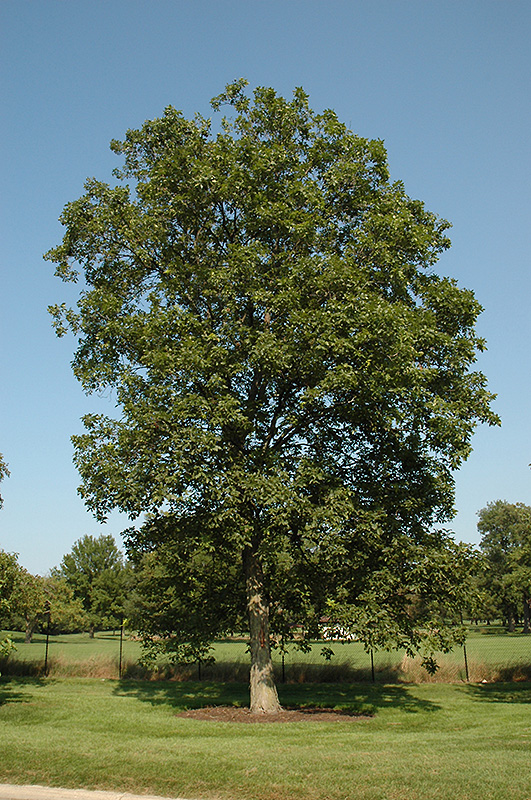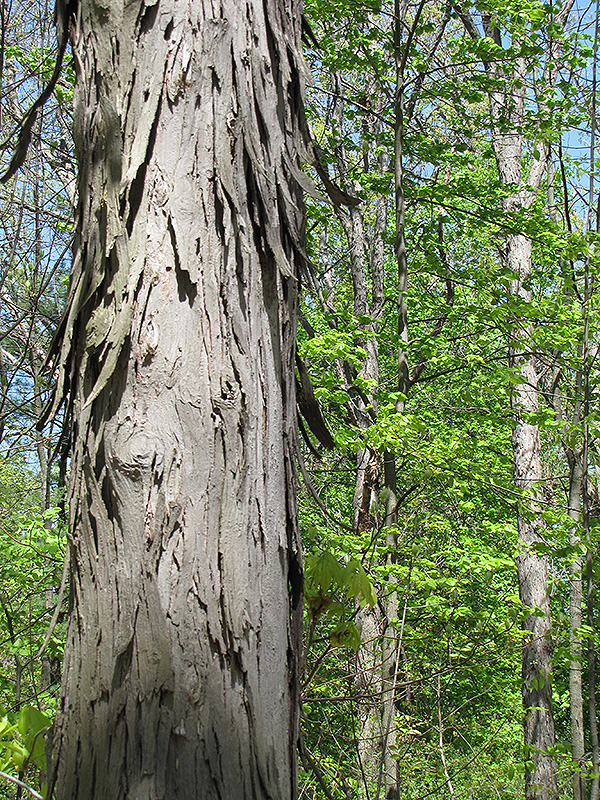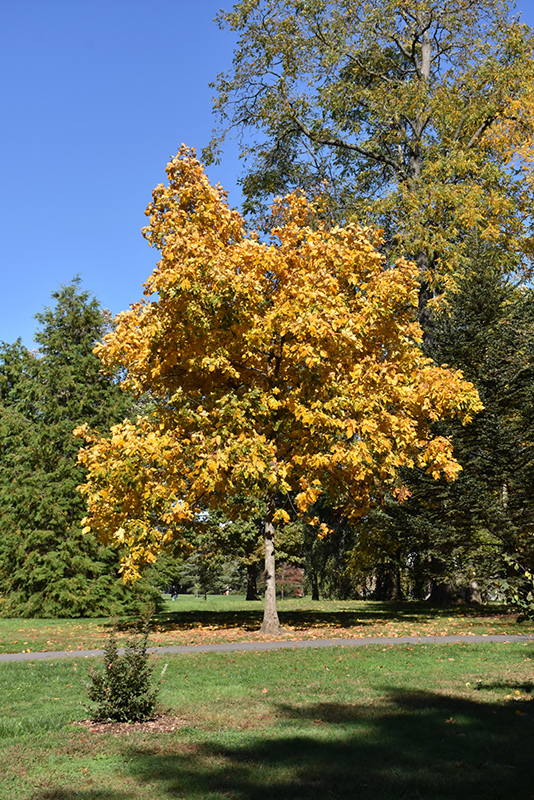Height: 60 feet
Spread: 45 feet
Sunlight:
![]()
![]()
Hardiness Zone: 4
Description:
A tall, narrow tree well known for its shaggy, peeling bark, a great ornamental feature, also has good fall color; difficult to transplant, can grow a little large for general home use but stately where it has ample room to grow
Ornamental Features
Shagbark Hickory has dark green deciduous foliage on a tree with an oval habit of growth. The large compound leaves turn an outstanding gold in the fall. It produces brown nuts in early fall. The fruit can be messy if allowed to drop on the lawn or walkways, and may require occasional clean-up. The shaggy dark brown bark is extremely showy and adds significant winter interest.
Landscape Attributes
Shagbark Hickory is a deciduous tree with a shapely oval form. Its average texture blends into the landscape, but can be balanced by one or two finer or coarser trees or shrubs for an effective composition.
This is a high maintenance tree that will require regular care and upkeep, and is best pruned in late winter once the threat of extreme cold has passed. It is a good choice for attracting squirrels to your yard. Gardeners should be aware of the following characteristic(s) that may warrant special consideration;
- Messy
Shagbark Hickory is recommended for the following landscape applications;
- Shade
Planting & Growing
Shagbark Hickory will grow to be about 60 feet tall at maturity, with a spread of 45 feet. It has a high canopy of foliage that sits well above the ground, and should not be planted underneath power lines. As it matures, the lower branches of this tree can be strategically removed to create a high enough canopy to support unobstructed human traffic underneath. It grows at a medium rate, and under ideal conditions can be expected to live to a ripe old age of 120 years or more; think of this as a heritage tree for future generations!
This tree does best in full sun to partial shade. It is very adaptable to both dry and moist locations, and should do just fine under average home landscape conditions. It is not particular as to soil pH, but grows best in rich soils. It is somewhat tolerant of urban pollution. This species is native to parts of North America.




